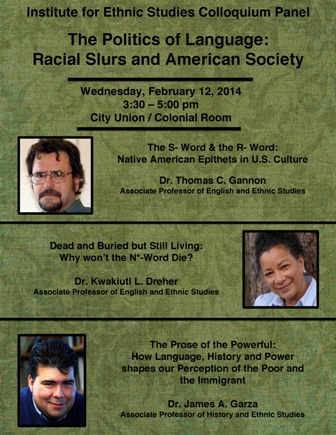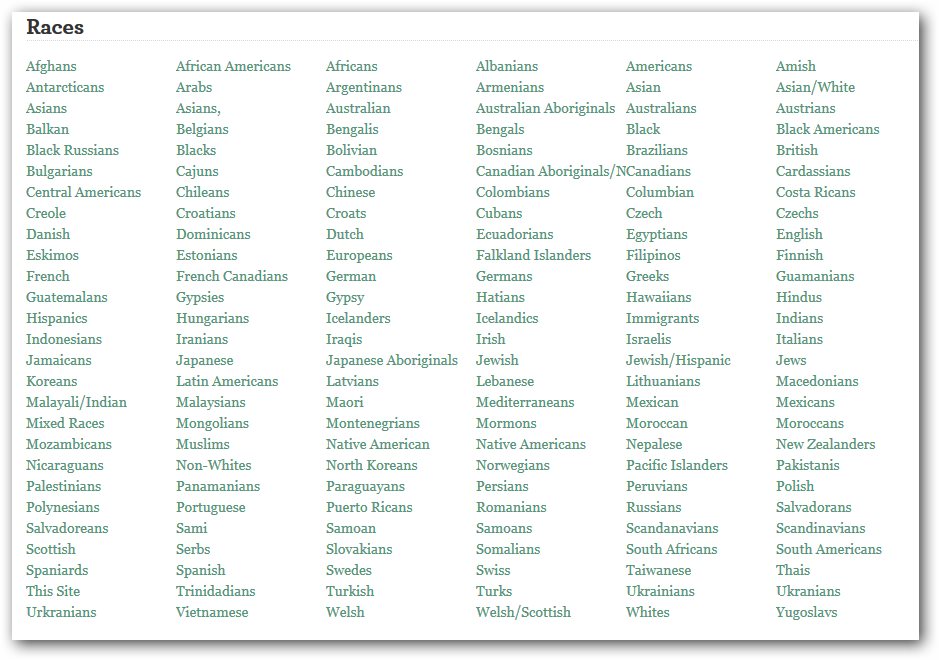Is 'Kook' A Racial Slur? Unpacking The Confusion And Understanding Offensive Language
In our increasingly interconnected world, words carry immense power. They can build bridges, convey affection, or, unfortunately, inflict harm. Understanding the nuances of language, especially when it comes to derogatory terms and slurs, is crucial for fostering respectful communication. One such word that often sparks confusion and debate is "kook." Is it a harmless insult, or does it carry the weight of a racial slur? This article delves into the definitions, origins, and usage of "kook" and its often-confused counterpart, "gook," to clarify their status as offensive terms.
The confusion surrounding "kook" is understandable. A reader once told a Wattpad author that their book title, "Kook," was a racial slur primarily used against Korean people. However, the author's subsequent Google search yielded no evidence for "kook" being a slur against Koreans, instead finding that "gook" was indeed highly offensive. This highlights a common misattribution, largely due to phonetic similarity. Let's unravel this linguistic tangle.
Understanding "Kook": More Than Just a Racial Slur?
The term "kook" primarily functions as a derogatory label, but its common usage is generally not rooted in racial prejudice. Instead, it typically refers to an individual exhibiting peculiar or unskillful behavior.
The Common Meanings of "Kook"
When you hear someone called a "kook," it most often falls into one of two categories:
- An Eccentric, Strange, or Crazy Person: This is the most prevalent definition in general American slang. A "kook" in this sense is someone whose behavior is odd, unconventional, or even a bit unhinged. While insulting, it typically targets an individual's perceived mental state or social conduct, not their ethnicity. The insult factor is clear—it would be insulting to be called a kook—but listeners wouldn't typically object to the word itself as a broad slur, understanding it to mean someone is crazy or eccentric.
- A Boardsport Participant Lacking Style or Skill: Particularly in surfing, kiteboarding, and wakeboarding communities, "kook" is a term for a novice who acts as if they are experienced, or someone who lacks fundamental skill and style. This usage is specific to a subculture and denotes a lack of proficiency or adherence to unwritten rules, again, without a racial component.
The word "kook" itself, like many other English insults, has a certain monosyllabic musicality with its two harsh consonants and vowel digraph. This makes it punchy and memorable as a pejorative, often used to describe someone as silly or deficient in intelligence, though almost always in a negative light, unlike its adjective form "kooky" which can sometimes be endearing.
"Kook" as a Racial Slur: A Closer Look at the Claims
While the predominant usage of "kook" isn't racial, the provided data does present conflicting claims that warrant examination:
- Misattribution to Koreans: As mentioned, the Wattpad reader's assertion that "Kook" is a racial slur against Korean people appears to be a misunderstanding, likely confusing it with "Gook." Extensive research, as the author found, does not support "kook" as a widely recognized slur for Koreans.
- Claimed Usage Against Whites: Interestingly, one piece of data states: "Kook is a slur used to describe Whites in a derogatory way. The word Kook is a racial slur that has been used historically to degrade and dehumanize whites. The word is still used by some people." This is a less commonly recognized application of the term as a racial slur. While the general definition of "kook" as an eccentric person is widely accepted, its specific historical use to degrade and dehumanize white people is not as broadly known or acknowledged as other racial epithets. This suggests a niche or historical context that is not part of its mainstream understanding today.
Given the primary definitions and common understanding, it's fair to conclude that while "kook" is undeniably an insult, its status as a *racial slur* is highly contested and not widely recognized, except for specific, less common claims, or through clear confusion with other terms.
Unpacking "Gook": A Clear Racial Slur
In stark contrast to "kook," the term "gook" is unequivocally and universally recognized as a potent racial slur. It is a derogatory, vulgar, and offensive ethnic epithet that has caused immense harm and dehumanization throughout history.
The Definitive Meaning of "Gook"
"Gook" is a racial slur primarily for East Asians and Southeast Asians in English. It is listed among ethnic slurs, ethnophaulisms, and ethnic epithets used to insinuate or allege negative characteristics about members of a given ethnic, national, or racial group.
Historical Context and Usage
The history of "gook" is deeply intertwined with American military conflicts and colonial ventures, particularly in Asia:
- Korean War (1950-1953): During this conflict, "gook" was extensively used by American troops against Koreans. The sentiment often extended to "the Vietnamese, because they 'all just look the same'," highlighting the dehumanizing nature of the slur that erased individual identity and lumped diverse groups together. There's a legend that the slur originated during this war, with American soldiers misinterpreting the Korean word for "America," "미국" (Miguk), as "Me, gook," leading them to believe Koreans were calling themselves this.
- Vietnam War: In modern U.S. usage, "gook" became particularly associated with communist soldiers during the Vietnam War. It was also broadly applied to all Vietnamese people and, at other times, to all Southeast Asians in general. This usage was instrumental in dehumanizing the enemy and civilian populations, making violence and atrocities easier to commit.
- Earlier Origins: The word's origin is unclear, but it may trace back even further. It is said that American troops used it during the Philippine-American War (1899), targeting native Filipinos. By the 1920s, its application broadened, with Marines using it to refer to French- and Creole-speaking black Haitians and Spanish-speaking Nicaraguans. This demonstrates how the slur was applied to various non-white groups perceived as "other" or "enemy" by American military forces.
The consistent thread through its history is its use to degrade and dehumanize non-white populations, particularly those encountered in military conflicts, thereby justifying violence and oppression.
Why the Confusion Between "Kook" and "Gook"?
The primary reason for the confusion between "kook" and "gook" is their phonetic similarity. Both are short, monosyllabic words with similar vowel sounds and ending consonants. In casual conversation or when someone hears a word without seeing it written, it's easy to mishear or misremember. The Wattpad author's experience perfectly illustrates this: a well-meaning reader, aware of the offensive nature of "gook," mistakenly attributed that status to "kook" due to the sound.
This highlights the importance of precise language and verification, especially when dealing with terms that carry significant historical and social weight. While "kook" might be an insult, "gook" is a weaponized word with a history of profound racial hatred.
The Broader Implications of Offensive Language
Understanding the distinction between terms like "kook" and "gook" goes beyond mere semantics. It speaks to a larger responsibility we have as communicators:
- Recognizing Dehumanization: Racial slurs like "gook" are designed to strip individuals and groups of their humanity, making it easier to justify discrimination, violence, and systemic oppression. Knowing their history helps us recognize and combat such dehumanization.
- Historical Awareness: The origins and usage of slurs are often deeply embedded in historical conflicts, power dynamics, and prejudices. Learning about them provides insight into past injustices and helps prevent their repetition.
- Impact on Individuals: Being called a racial slur can have a deeply traumatic and lasting impact on an individual's mental and emotional well-being. Even if a word is misattributed, the intent to cause harm or the association with prejudice can be damaging.
- Evolving Language: Language is dynamic. While "kook" might not be a racial slur in its common usage today, the possibility of words acquiring new meanings or connotations, or being used in specific contexts to cause racial offense, always exists. Constant vigilance and education are key.
- Promoting Respectful Dialogue: By understanding which words are truly harmful and why, we can engage in more respectful, empathetic, and inclusive conversations, contributing to a more tolerant society.
Summary
In conclusion, while the word "kook" is a derogatory term used to describe someone eccentric, strange, or unskilled, it is generally not recognized as a racial slur in mainstream English usage. There are specific, less common claims of its use against white individuals, and a clear misattribution by some who confuse it with "gook." In stark contrast, "gook" is an unequivocally offensive and historically significant racial slur, primarily targeting East and Southeast Asians, with its origins deeply rooted in American military conflicts and colonial history. Distinguishing between these terms is vital for accurate communication and for recognizing the profound impact of truly hateful language.

The Politics of Language: Racial Slurs and American Society | Announce

The n-word: An entrenched racial slur now more prevalent than ever

Michael Brachman's Blog: Tales of the Vuduri - Vooks and slurs